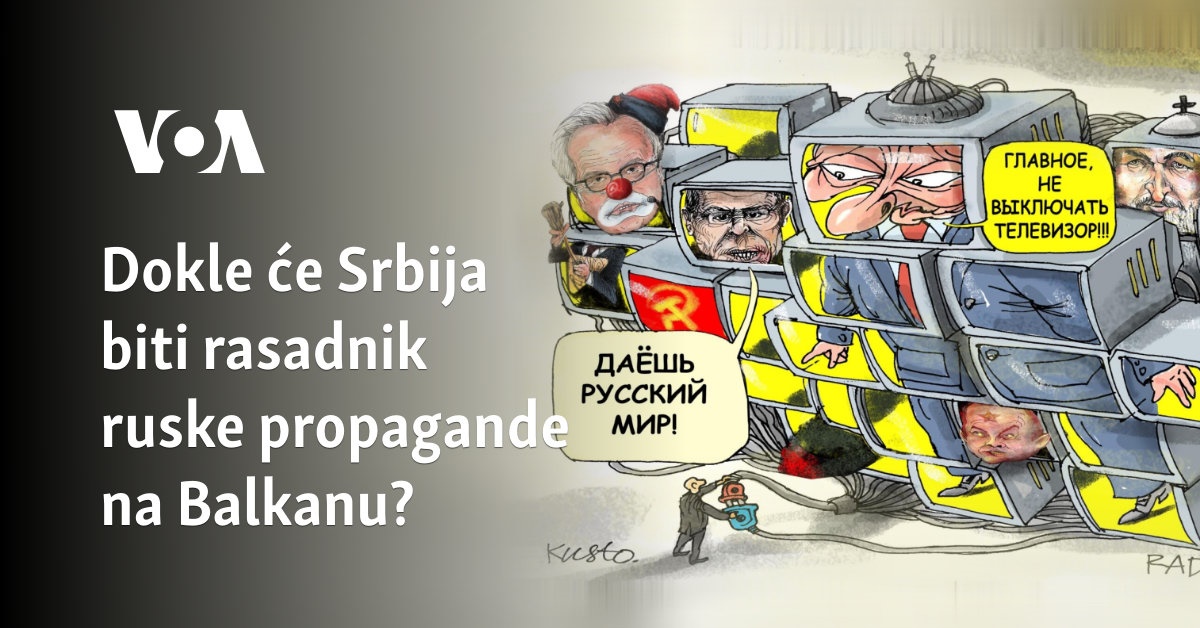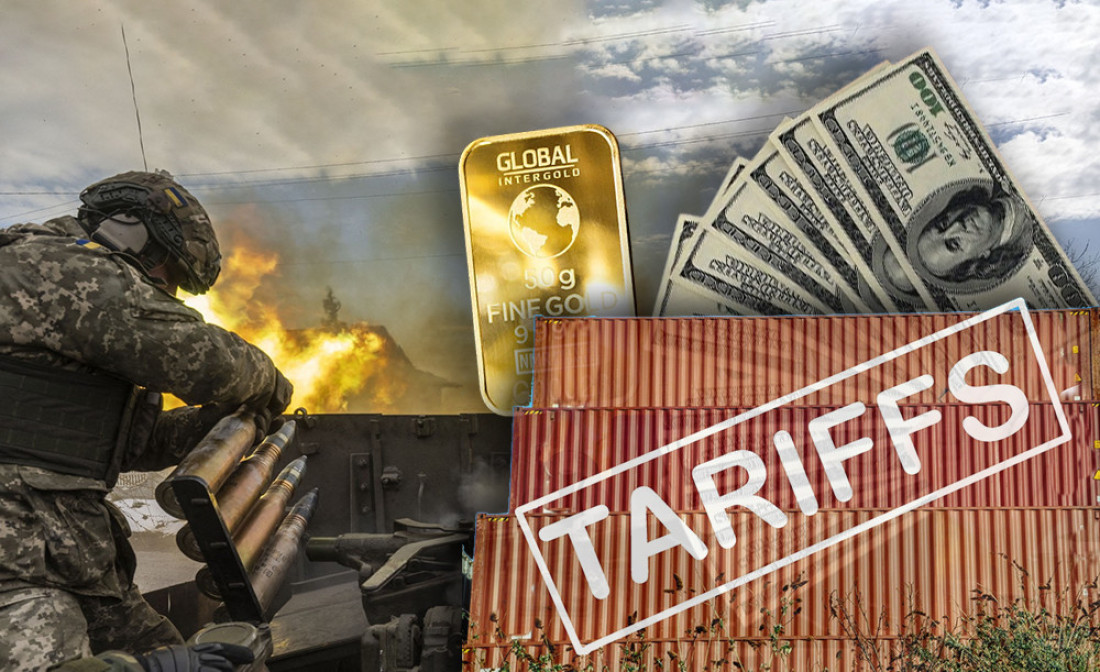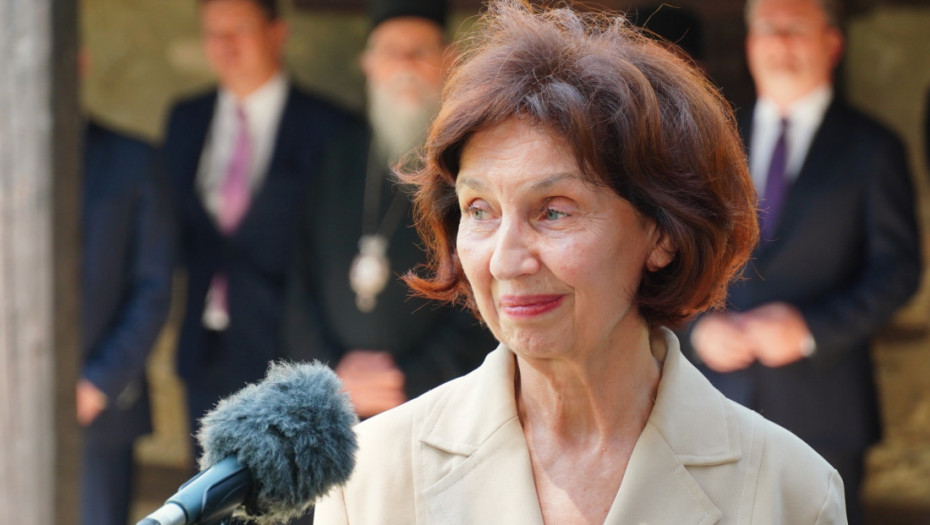Vašington – „Media manipulation and interference are significant risks to democratic processes and social stability in Serbia and the Western Balkans. The Global Engagement Center of the State Department previously warned that Kremlin media RT and Sputnik are the most significant elements in the Russian disinformation and propaganda system,“ the response from the State Department stated in response to an inquiry from Voice of America regarding the unhindered work of Russian state media in Serbia – despite sanctions and bans imposed on them, among other things, for inciting and supporting aggression in Ukraine. This issue was highlighted by a recent report by Reporters Without Borders, a non-governmental organization focused on protecting journalists and media freedom.
It pointed out that RT – formerly known as „Russia Today“ – uses its Belgrade bureau to adjust the Kremlin’s narrative before expanding into the Southeastern European region. It was also stated that this was made possible due to the influence of Serbian authorities on the media, as well as a favorable political environment. In response, the State Department emphasized that they will continue to cooperate with Serbian partners in identifying and responding to threats and covert activities of RT.
„Last month, Secretary of State (Antony) Blinken announced that RT, as part of ‘Russia sevodnje’ which includes RT Balkan, has surpassed its role as a propagandist and disinformation agent of the Kremlin and began engaging in covert destabilizing influence and operations in the information space worldwide. The United States imposed additional sanctions to respond to Russia’s attempts to interfere in the upcoming elections in Moldova and influence malign activities conducted worldwide by those controlling RT,“ the response to Voice of America stated.
This refers to the September decision by US authorities to sanction Russian state media. RT was designated as an accomplice to the Russian military, raising funds to purchase sniper rifles, armor, and other equipment for soldiers fighting in Ukraine. The European Union, a community with which Serbia has been negotiating for membership for over a decade, also expressed its position on the functioning of Russian media in Serbia. Peter Stano, a spokesperson for the EU diplomatic service, stated that Serbia must take urgent measures to combat Russian media manipulation and interference.
„The European Union has imposed sanctions on Russian state media, including RT, whose broadcasting in and from the EU has been suspended. These media, including RT in all its forms, have become Kremlin’s instruments in the war against Ukraine and channels for spreading and manipulating information,” Stano told AFP news agency. However, although a candidate for EU membership, Serbia has not made a decision to ban the broadcast of RT and Sputnik. Unlike Serbia, Montenegro did so back in 2022. In response to the call from Brussels, Arno Gujon, head of the Office for Public and Cultural Diplomacy at the Serbian Government, said that the country will continue to promote media diversity and freedom of thought.
„The EU’s demand is very concerning. It reminds of the communist period when censorship was practiced in Yugoslavia in the name of combating ‘harmful or unwanted ideas.’ It goes against the values of pluralism, tolerance, and freedom of speech that Serbs believe in and for which numerous Serbian intellectuals who were imprisoned and killed fought,” Gujon wrote on the social network „Eks.“ RT Balkan has been in Serbia since 2022. It publishes content on the internet portal and social media. The television, although discussed, has not yet been launched. Sputnik Serbia, on the other hand, arrived a bit earlier – in 2017. It is part of the Russian news agency Sputnik based in Moscow, whose founder is the state media group „Russia sevodnja.“ It is the successor to the agency „RIA Novosti“ and radio „Glas Rusije.“ Ruslan Trad, an expert at the Digital Forensic Research Lab at the non-governmental Atlantic Council, explains to Voice of America that Russia is provided with a platform in Belgrade to build a serious infrastructure, which includes media presence. “The strong influence of the authorities on public life in Serbia allows information operations to take place in an environment that is suitable for them. Thus, pro-government Russian narratives gain continuity in local media. Russian propaganda media use Serbia to establish a presence in the wider region. They use various methods, such as advertising platforms on Google, in which users have trust, to redirect them to content of ‘Russia Today’ or other Russian or pro-Russian media in the Serbian language,” emphasizes the expert on the body specialized in exposing disinformation and fake news, documenting human rights violations and building digital resilience. Trad believes that Serbian authorities will not do anything about the complaints raised by the European Union or non-governmental observers. “Belgrade’s stance is clear. The European Union, which has economic interests in Serbia related to lithium, is unlikely to do more than comment and advertise. Vučić does not see it as a problem, so things will continue to be done in the same way,” the Voice of America interlocutor assessed. He also points out that the change in such a situation depends on political decisions and the will to enforce the law. “It is obvious that Belgrade allows all this out of interest, not because it is pushed against the wall. Unlike other countries in the region, Serbia sees the Russian Federation as an ally, but not as a partner at any cost. It is not a coincidence that Belgrade also has ties with China, the US, European countries like France. However, if it wants to become a part of the European family, Belgrade will have to apply the rule of law and improve the media environment,” concludes Ruslan Trad, an expert at the Digital Forensic Research Lab at the Atlantic Council. NATO’s Center of Excellence for Strategic Communication (STRATCOMCOE) published a study in May 2020 titled „Russian Footprints in the Information Environment of the Western Balkans,“ which concluded that Russia’s presence in the Western Balkans is inevitable, which is why the engagement and assistance of the European Union, NATO, and the United States are important in the process of democratic reforms of the countries. Publications from that organization analyzed the media that contribute to the spread of Russian influence by distributing content from Sputnik Serbia, for which it was stated to exist across the Western Balkans. On that list were Srbin.info, Novosti.rs, B92.net, Informer, Kurir, Alo, Blic, and Telegraf.
Dokle će Srbija biti rasadnik ruske propagande na Balkanu?

Podeli vest



